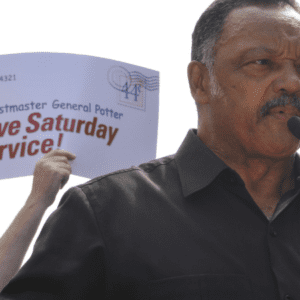May 1, 2017
Older Americans Month: Age Out Loud
(This article first appeared in the May-June 2017 issue of The American Postal Worker magazine.)
By Retirees Director Nancy Olumekor
The first Older Americans Month (OAM) was launched in 1963, aimed at celebrating the contributions and lives of older Americans. 
This year’s theme is “Age Out Loud,” highlighting “the ways older adults are living their lives with boldness, confidence, and passion, while serving as an inspiration to people of all ages. Getting older doesn’t mean what it used to… For many aging Americans, it is a phase of life where interests, goals, and dreams can get a new or second start,” said the Agency on Aging of South Central Connecticut.
Today, aging is about eliminating outdated perceptions and living the way that suits you best. Older Americans are taking charge, striving for wellness, focusing on independence and advocating for themselves and others. What it means to age has changed. OAM 2017 is a perfect opportunity to recognize and celebrate what getting older looks like today.
The APWU Retiree Department would like you, your local and chapter to use OAM 2017 to focus on how older retirees in the APWU are redefining aging. Through work or family interests, by taking charge of your health and staying independent for as long as possible, and through your community and advocacy efforts, use this opportunity to learn how we can best support and learn from our older members.
Share the story with your members of an older APWU Retiree member in your local or state who is “Aging Out Loud.”
Send their story to the APWU Retiree Department, Attn: Age Out Loud, 1300 L Street NW, Washington, DC 20005. Submissions need to arrive no later than July 15. Please limit the story to 300 words or less. Photos can be included.
Editor’s Addition:
The National Executive Board adopted a resolution at their meeting in February which reads:
“Whereas the great contributions of older Americans are honored in May, and
“Whereas retired postal workers helped build the American Postal Workers Union, making it the powerful union it is today, and
“Whereas retired postal workers continue to strengthen the union by contributing to COPA (Committee on Political Action), lobbying in support of our legislative agenda, organizing locally, and participating in APWU and AFL-CIO activities; and Whereas APWU retirees have been pillars of support to their children, grandchildren and communities,
“Therefore Be It Resolved, that the National Executive Board encourages all state and local affiliates and retiree chapters to celebrate the countless contributions APWU retirees have made and continue to make to the APWU, the labor movement, their communities, their families and their nation.”
USPS Claim of Overpayments or Outstanding Debts of Retired Employees
Retirees have a right to file a grievance when becoming aware of an alleged outstanding debt owed to the USPS. That right is in the contract and JCIM under Article 15, Section 7- Outstanding Debts of Retired Employees.
The APWU and the USPS agreed, in part, that:
“Due Process requires prior notice. Retirees are entitled to a written notice, including notice of their right to file a grievance, before the Postal Service takes any action to collect on an alleged payroll issue or outstanding debt. If a timely grievance is filed, the collection of the debt will be delayed until final disposition of the grievance, either through settlement or exhaustion of contractual remedies. The Postal Service may not submit a Request for Recovery of Debt to the Office of Personnel Management (OPM) before the grievance/arbitration procedure has been exhausted. The Article 15 time limits apply. A Step 1 grievance must be filed within fourteen (14) days of the date on which the employee or the Union first learned of its cause, the alleged payroll or collection dispute.”
Retirees, when you receive any type of notice from the USPS or OPM claiming that you owe the USPS money, you must act immediately. The notice may come in the form of a Notice of Determination of a Debt, a Letter of Indebtedness, a Letter of Demand or an invoice from the USPS.
Read the letter completely, then contact the local union representative where you last worked to file a grievance.



